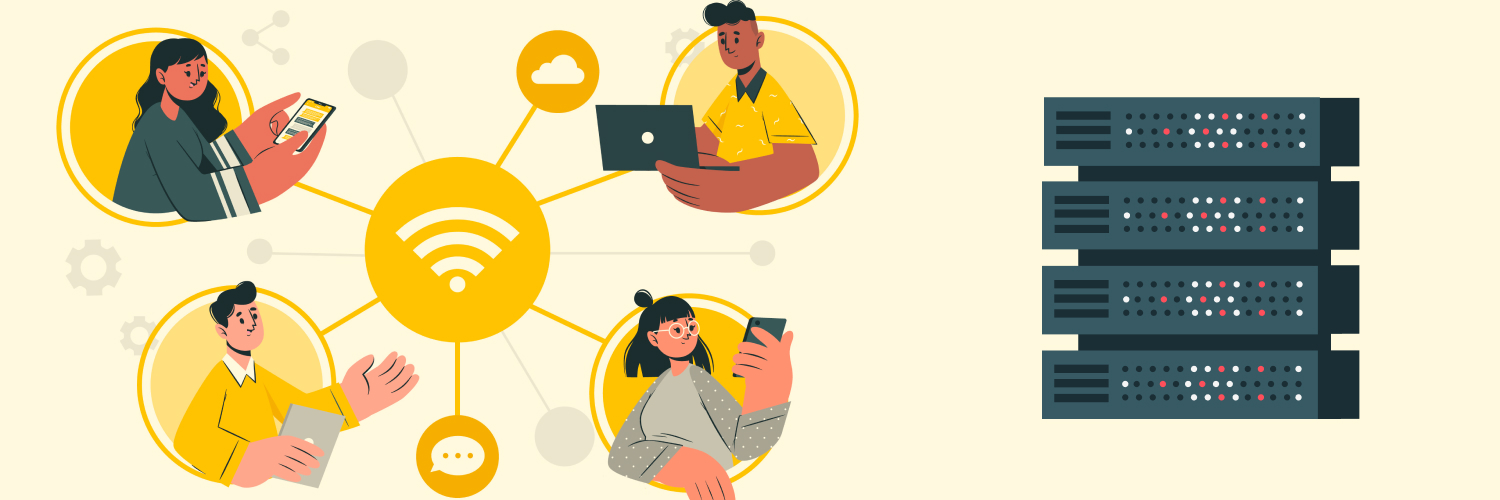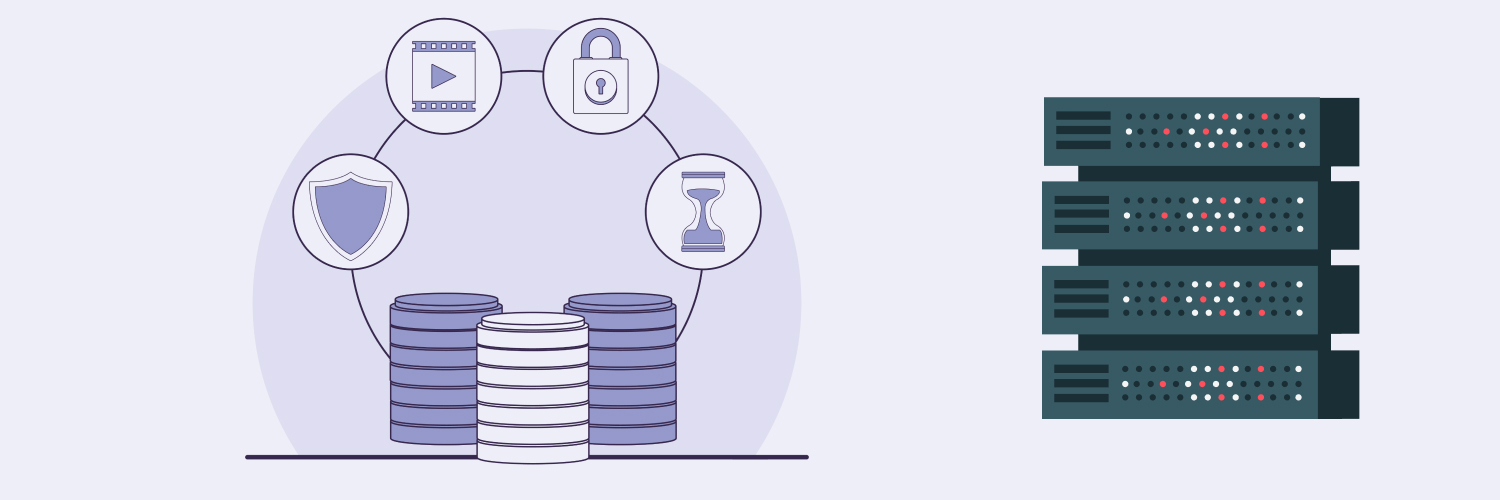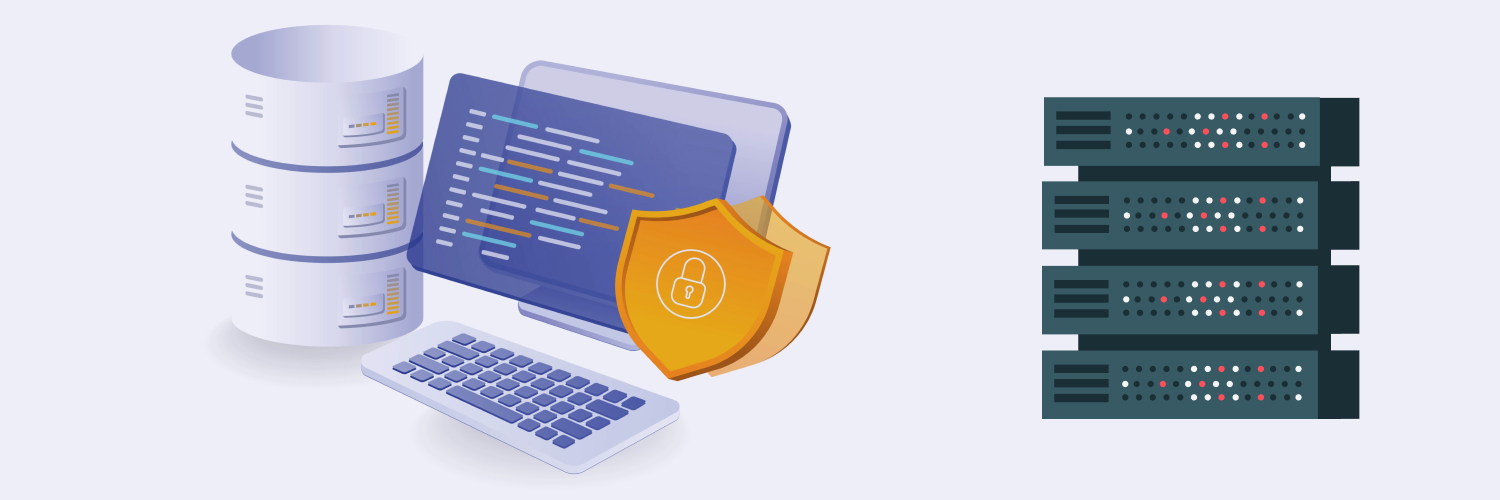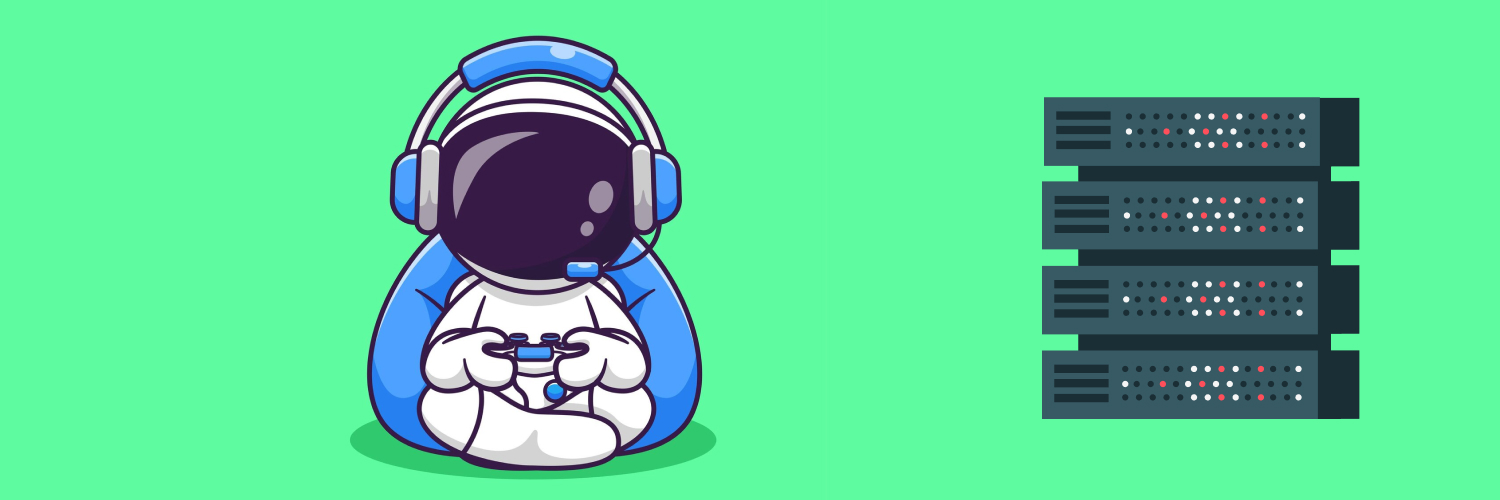How To Extract Data From A Website In 2024?
Data extraction is gaining popularity among professionals, academics, and even individuals who want to create information databases for their own personal use. Are you looking for advice on how to extract data from a website? If so, we’ve got you covered.
In this guide, you’ll learn about the different ways to extract data from a website, as well as the pros and cons of each option. You’ll also find insights to help you choose the best method for your needs.
Reasons to Extract Data from a Website

There are many reasons why someone — particularly a business owner — might want to extract data from a website. The following are some of the most frequently cited ones:
- Market research and analysis: Extracting data on product prices, features, and customer reviews from competitor websites can help businesses understand the market landscape and make informed decisions about their own products and pricing strategies.
- Lead generation: Websites like business directories or social media platforms can be scraped for contact information of potential customers, which can then be used for marketing campaigns.
- Price monitoring: Businesses can track the prices of their products or competitors’ products on various websites to identify trends and adjust their pricing accordingly.
- Brand monitoring: Extracting mentions of a brand from social media and other websites can help businesses track their brand sentiment and reputation.
- Data enrichment: Businesses can enrich their existing customer data with additional information scraped from websites, such as demographics or social media profiles.
While business owners can undoubtedly experience advantages when they extract data from websites, others can benefit from this process as well.
For example, academics can use data extraction to collect large datasets for statistical analysis or extract patterns from large blocks of information. Individuals can also extract data to compare prices on various products or create a database of recipes, job listings, movie reviews, etc.
Types of Data You Can Extract from Websites

Whether you’re a business owner, researcher, or just someone who’s passionate about data collection, you can extract a wide range of data from websites. Listed below are just some examples:
Text data
Text data is the most basic and prevalent types. It encompasses any textual information that is displayed on a website, including the following:
- Headlines, paragraphs, captions, and labels: This data is helpful for content analysis, sentiment analysis, and topic modeling.
- Links and URLs: This data can help you discover website structure and the relationships between pages.
- Metadata: This is extractable from HTML tags and provides information about the page itself.
- Form data: This includes user-submitted information like names, emails, and responses.
Structured data
Structured data refers to organized information often presented in tables, lists, or specific formats like JSON or XML.
Examples include:
- Product details: Prices, features, specifications, reviews, ratings, etc.
- Financial data: Stock prices, financial statements, market trends, etc.
- Event information: Dates, times, locations, participants, descriptions, etc.
- Scientific data: Research results, datasets, measurements, tables, etc.
Social media data
Many social media platforms offer APIs for extracting specific data points, including the following:
- User profiles: Names, locations, bios, follower counts.
- Posts and comments: Content, timestamps, likes, shares, reactions.
- Trending topics and hashtags: Insights into current discussions and interests.
Additional types
Some other examples of data you might collect from websites include geolocation data, contact information (such as email addresses, phone numbers, and physical addresses), and job postings and descriptions (including job titles, locations, responsibilities, requirements, etc.).
Ways to Extract Data from a Website

Now that you know all the different types of data you can extract, let’s get into the specifics of how to extract data from a website. Here are some of the most common strategies you can use for data collection:
Manual extraction
Manual data extraction is, generally speaking, the most straightforward method of collecting data from a website. It involves copying information from one website and pasting it somewhere else (such as an Excel document).
Manual extraction is the simplest option, and it doesn’t require any advanced technical skills, but it’s also very time-consuming. When you’re working with large datasets, there’s also a lot of room for human error.
Browser extensions
Web scraping browser extensions offer a convenient way to extract data from websites without needing to write code. Several tools provide basic scraping functionalities and can handle simple tasks like copying tables and lists and transferring them directly to spreadsheets.
Of course, browser extensions do come with their limitations. For example, because they only offer basic features, they may not be instrumental when you’re trying to scrape data from complex, dynamic websites.
Not all extensions are created equal, either, especially when it comes to security and privacy. Users must be cautious about the permissions they grant extensions and make sure they come from reputable sources.
Web scraping tools
Web scraping tools are software applications that automate the process of extracting data from websites. They offer a wide range of features and capabilities beyond manual extraction or browser extensions and cater to various user needs and skill levels.
Many web scraping tools offer a point-and-click interface that allows users to click on or highlight specific webpage elements and select the data they want to extract. They also feature defining rules that help with filtering, data combining, and data manipulation. These tools allow users to export data in various formats, such as CSV, JSON, and Excel.
Web scraping tools are beneficial because they are highly efficient and can extract large amounts of data quickly and consistently. They also automate repetitive tasks and minimize human error while also adapting to various website structures and extraction needs.
Some web scraping tools offer additional advantages because they are powered by artificial intelligence (AI). If you use AI to extract data from a website, you can experience increased accuracy, further reduce the risk of human error, and gain access to advantaged capabilities and features like data enrichment, anomaly detection, and sentiment analysis.
Programming languages
Programming languages like Python have libraries (Beautiful Soup, Scrapy, etc.) that provide powerful scraping capabilities for advanced users.
Using programming languages to extract data from websites offers greater control and flexibility because you can write code that precisely targets the specific data you need, even if it’s structured uniquely or hidden within dynamic elements. This approach also helps with large-scale data extraction and can increase performance and efficiency.
Another bonus of using programming languages like Python is that they provide access to robust communities. Members of these communities are often eager to assist if you encounter a problem with your code and can help you get back on track quickly.
One of the main drawbacks of using programming languages is that they require advanced coding skills. The initial development and maintenance of scripts takes quite a bit longer than using pre-built tools (although you may find that once the scripts are written, the process is more efficient).
APIs
Some websites offer application programming interfaces (APIs) allowing programmatic data access. APIs are software intermediaries that allow two applications to “talk” to each other and share information.
Relying on APIs is often the most efficient and reliable method. They can also reduce the complexity of the data extraction process because they come with pre-built functionalities for data filtering, sorting, and formatting.
There are also some potential downsides to using APIs for data extraction. For example, this approach requires knowledge of the specific API, and you may have to pay for a subscription. Not all data is available through APIs, either, and you have to rely on the API provider’s uptime, maintenance, and data quality to get the job done.
Common Data Extraction Challenges

Whether you manually extract data, rely on an API, or use any of the other tools mentioned above, you may run into challenges from time to time when extracting data from websites.
Here are some of the most common obstacles you might face:
- Dynamic content: Websites that rely heavily on JavaScript or other dynamic technologies can be challenging to scrape accurately, as the data you want might be generated on the fly.
- Complex website structure: Websites with complex layouts, nested elements, or inconsistent data formatting can be challenging for scraping tools to navigate and extract data efficiently.
- Anti-scraping measures: Some websites use CAPTCHAs, honeypots, or IP blocking to prevent automated data extraction.
- Data validation and cleaning: Extracted data may contain errors, inconsistencies, or missing values. Cleaning and validating the data can be time-consuming and require additional tools or processes.
- Limited access to data: Not all websites offer APIs or allow scraping, and some data might be hidden or require logins.
- Cost: Paid tools or services might be necessary for complex scraping needs, while free options may have limitations.
- Technical expertise: For advanced scraping tasks, coding skills and familiarity with specific tools or languages may be required.
Best Practices for Extracting Data from Websites

You now know how to extract data from a webpage using various methods. You might still have some questions about the actual data extraction process.
Listed below are some bonus tips and best practices that can help you speed up the data extraction process while also increasing accuracy:
Set clear goals
Start by clarifying what you want to accomplish by extracting data from a website.
Are you looking for product details? Financial data? Job listings? Break down the type of data you want to collect and make a list of the websites you plan to visit to extract that data.
In addition to clarifying what kind of data you want to extract, consider how you’re going to use it.
If you take the time to plan this information at the beginning, you can save a lot of time throughout the rest of the process. You’ll also have an easier time collecting high-quality, relevant data.
Choose the right method
Choosing the proper web scraping method depends on several factors, so there’s no one-size-fits-all answer. Here are some key questions to ask yourself:
- Are you scraping static or dynamic data? Is the data readily available on the page (static), or does it load dynamically through JavaScript or other means?
- How is the data structured? Is the data well-structured (e.g., in tables) or unstructured (e.g., text)?
- How much data do you need to scrape?
- Are you comfortable writing code, or do you need a no-code solution?
- Have you scraped data before, or are you a beginner?
The answers to these questions can help you decide on the most suitable data extraction method.
Plan for possible failures
Remember that you might run into challenges throughout your data extraction journey, especially at the beginning when you’re still learning the ropes.
While you might not be able to avoid these obstacles altogether, you can at least navigate them more easily if you plan for them in advance.
One of the most effective steps you can take to overcome common data extraction challenges is to diversify your approach (i.e., using multiple methods like browser extensions and web scraping tools simultaneously).
If you’re building your own scraper using Python or another programming language, build it with adaptability in mind. Write the code so the scraper can adapt to updates and changes in website structure.
Regularly parse and verify extracted data
Data parsing is the process of converting data from one format, such as HTML, into another format, like JSON or CSV. You must parse data after extracting it so you can analyze and work with it.
Technically, you can leave data parsing to the end of your data extraction process. However, if you wait, you might not notice an issue until it’s too late.
Regularly parse and verify data to ensure your tools are working correctly. That way, you don’t waste time scraping pages and collecting data you cannot use.
Store and backup data at regular intervals
Make a plan to store your data securely and back it up regularly.
During the data extraction process, schedule regular check-ins — and when you reach those points, store the data somewhere you can easily access it, such as an Excel spreadsheet.
If you regularly store and backup data, you won’t have to start over from scratch if an error occurs. This will save you a lot of time and help you work more efficiently.
Use a headless browser
A headless browser is a web browser that operates without a graphical user interface (GUI). In simpler terms, it’s a browser that runs in the background without any visible window or interface on your screen.
Using a headless browser for data extraction can speed up the process significantly. It also helps you avoid an issue known as bandwidth throttling, which occurs when your internet connection speed slows down.
Use proxies
Proxies act as buffers between your computer and the target website from which you are trying to extract data. A proxy allows you to send requests through a different IP address instead of your own.
Proxies provide a lot of benefits when scraping websites and collecting data. These are some of the most well-known ones:
- Hide your actual IP address: By sending requests through a proxy’s IP address instead of your own, you remain anonymous to the target website. This helps avoid getting blocked for exceeding scraping limits or triggering anti-bot measures.
- Prevent scraping detection: Websites often employ techniques to detect and block scraping activity. Proxies can mask these signals, making it harder for websites to identify you as a scraper.
- Access geo-locked content: Some websites restrict access based on user location. Proxies with IP addresses from specific regions allow you to bypass these restrictions and access content that wouldn’t be available otherwise.
- Scrape location-specific data: If you need to scrape data specific to a particular location, using a proxy with an IP address from that region can ensure you get the relevant information.
- Spread requests across many IP addresses: Websites typically set rate limits on the number of requests a single IP address can make. By using a pool of proxies, you distribute your requests across multiple addresses, avoiding getting blocked for exceeding limits.
- Prevent overloading servers: Sending many requests from a single IP can overload website servers. Proxies help spread the load and reduce the risk of disrupting the website’s performance.
- Improved speed (in some cases): While latency can be an issue with some proxies, using geographically closer ones can sometimes improve download speeds compared to your own internet connection.
- Testing and bypassing CAPTCHAs: Certain proxy services offer features geared explicitly towards testing websites and bypassing CAPTCHAs, which can be helpful for specific scraping tasks.
There are several types of proxies you can use to experience the benefits listed above, including the following:
- Data center proxies: These are the most affordable and readily available options. They reside in data centers rather than physical homes. However, their shared nature often leads to website blocks due to high scraping activity.
- Residential proxies: These proxies originate from real residential devices like home internet connections and offer superior anonymity. They may be more expensive than data center proxies, but they are also less likely to get blocked.
- ISP proxies: ISP proxies combine the benefits of both data center and residential proxies. They use data center servers, so they’re fast and reliable. However, the IP addresses are registered with Internet Service Providers in a way that makes them look like residential proxies to websites.
Why People Love Residential Proxies to Extract Data from a Website

Using proxies is one of the best things you can do if you want to extract a database from a website. Furthermore, residential proxies are among the most helpful of all the different proxy options.
Here are some of the greatest benefits of using a residential proxy to extract data from a website:
Increased success rates
First and most importantly, residential proxies tend to have a higher success rate for web scraping compared to other varieties.
One reason for this is that websites often employ anti-scraping measures to detect and block automated requests. Residential proxies, because they originate from real devices in homes and businesses, appear more like legitimate users, which makes it harder for websites to identify and block scraping activities.
Many residential proxy providers also offer the ability to choose specific locations for your requests. This option allows you to access geo-restricted content.
It’s common for websites to use CAPTCHAs or other challenges to identify bots as well. With their association with real users, residential proxies can help reduce the frequency of these challenges, allowing you to scrape data more smoothly.
Keep in mind, too, that in some cases, websites use “honeypots” to trap and identify scrapers. Since residential proxies blend in with legitimate users, they can help you avoid falling victim to these traps.
Improved data quality and reliability
Using residential proxies for data extraction can also lead to superior data quality and greater reliability.
Websites may also tailor content or pricing based on user location. Residential proxies allow you to access data that reflects real user experiences in different regions, which provides you with more accurate and representative information.
Enhanced anonymity and flexibility
Finally, residential proxies allow for a greater sense of anonymity and are more flexible and scalable compared to some other proxy types.
On the anonymity front, residential proxies can offer an added layer of protection compared to direct scraping from your IP address.
As for scalability, many proxy providers offer an extensive pool of residential proxies, which makes it easy for you to scale your scraping operations up or down as needed. These providers may also allow you to choose from static and rotating proxies so you can adjust your approach as needed.
Final Thoughts

Extracting data from a website can help you gain valuable insights for your business, academic research, personal research, or anything in between.
If you’re new to the world of web scraping and data extraction — or if you just want to improve your current strategy — the guidelines shared above can help. Keep them in mind so you can refine your approach and consistently gather high-quality data.
When extracting data from websites, remember that proxies are especially helpful when it comes to successful scraping, data quality, anonymity, and flexibility.
If you want to use residential proxies to extract data from a website but aren’t sure where to start, Rayobyte can help.
Rayobyte is an award-winning proxy provider dedicated to reliability and ethics. We are also the country’s largest proxy provider and offer an array of services, including residential proxies, to help you with your data scraping strategy.
The information contained within this article, including information posted by official staff, guest-submitted material, message board postings, or other third-party material is presented solely for the purposes of education and furtherance of the knowledge of the reader. All trademarks used in this publication are hereby acknowledged as the property of their respective owners.






